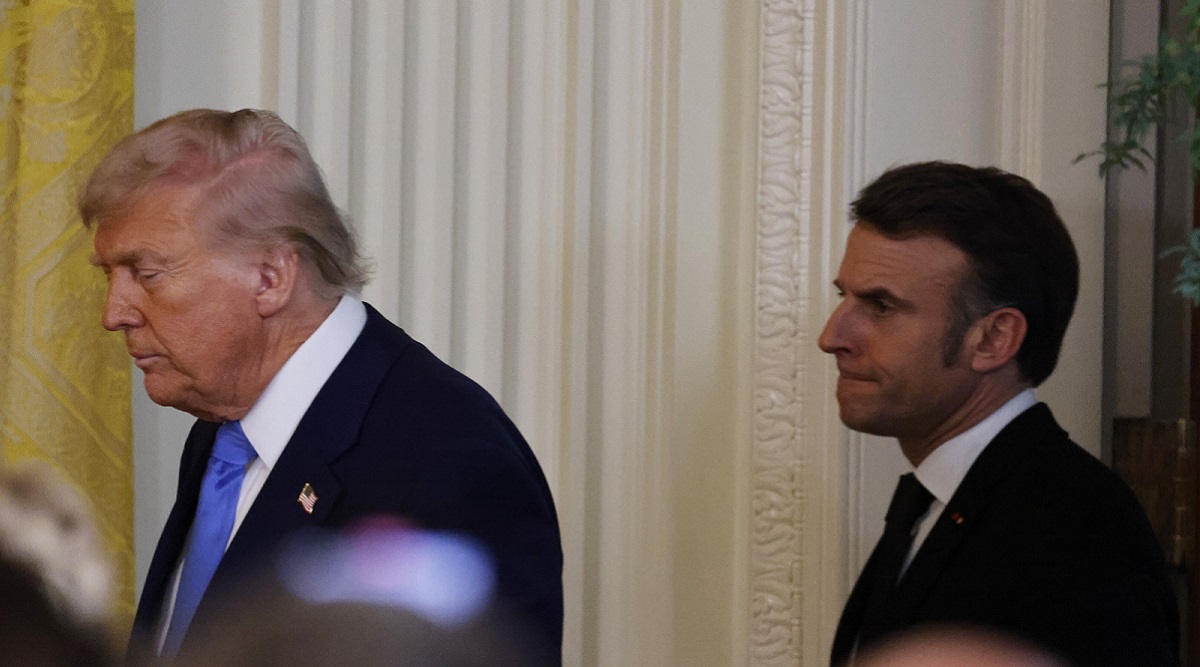The future of Ukraine’s security: why the EU failed to get guarantees
27 February 19:48
In late February 2025, the European Union faced difficulties in providing clear security guarantees for Ukraine. French President Emmanuel Macron, after meeting with U.S. President Donald Trump, told EU leaders that he had not received concrete assurances about U.S. security commitments to Ukraine. This has caused concern among European diplomats and officials, as strategic uncertainty over the issue persists.
[Kommersant analyzed the situation together with experts.
What preceded the French president’s statement
President of Ukraine Volodymyr Zelenskyy emphasized the need to provide Ukraine with reliable security guarantees to prevent further aggression from Russia. He emphasized that any solutions without such guarantees would be insufficient to ensure peace and stability in the region.
In response to these challenges, President of the European Council Antonio Costa said that the EU is ready to assume greater responsibility for Europe’s security and contribute to future security guarantees for Ukraine. He emphasized the need to prepare for Europe’s possible participation in ensuring long-term peace and stability in Ukraine.
However, German Defense Minister Boris Pistorius noted that Europe will not be able to provide security guarantees for Ukraine in the coming years without the participation of the United States. This emphasizes the dependence of European security on American support and the need to strengthen transatlantic cooperation.
At the same time, US President Donald Trump said that Ukraine can “forget” about joining NATO and that the responsibility for providing security guarantees lies with Europe. He noted that NATO enlargement could have been one of the reasons for the conflict, which reflects Russia’s position on this issue.
In the absence of clear international guarantees, Ukraine is seeking to strengthen its own defense capabilities. President Volodymyr Zelenskyy has already stated the need to increase the size of the Ukrainian army to 800,000 troops and the importance of international financial support to achieve this goal.
Why the United States did not agree to the French President’s proposal for security guarantees for Ukraine
Political analyst Ruslan Bortnik explains that it was not so much about guarantees for Ukraine as about guarantees for Europeans in Ukraine. After all, today France and the United Kingdom are ready to send their peacekeeping contingents to Ukraine, but only if the United States guarantees their security. Because the joint French-British forces cannot ensure their own security because of serious problems in the aviation component and in intelligence.
“Therefore, the model with which Macron went to Washington, and the model with which Starmer (British Prime Minister Keir Starmer) will probably arrive in Washington today, in a little bit or in a few hours, is the model of European peacekeepers, European security guarantees for Ukraine. But the European security guarantees, the guarantor of the guarantors, should be Washington,” Bortnik said.
The expert added that Donald Trump does not agree to provide any security guarantees, does not agree to any scenario of military participation or complicity on the territory of Ukraine, as he does not want to have any potential reason for a direct clash with Russia.
According to the political scientist, Europe could propose the creation of a broader peacekeeping mission based on the UN. Its representatives could approach China, Brazil, India, South Africa and other countries with a proposal to create such a joint mission. After all, at present, Russia categorically rejects a mission that includes NATO countries. In addition, it should be borne in mind that Russia has a very poor attitude towards both France and Britain.
“It seems to me that Europe today should offer its own peace plan for a peaceful settlement. Three years of war have passed, but there is still no peace plan for Europe (nor for Ukraine) on the table. And it is in this void that Trump’s initiatives were born and sounded,” Ruslan Bortnik said.
Speaking about the visit of the French leader to the United States, the political analyst emphasized that as a result of this trip, France also began to change its political position. There are no longer any statements about the war to the bitter end, about the borders of ’91, about what France used to insist on and what it used to support Ukraine in.
Thus, the current situation underscores the need to develop effective and reliable mechanisms to guarantee Ukraine’s security, which would take into account both European and American interests, as well as Ukraine’s desire to strengthen its own defense capabilities.









